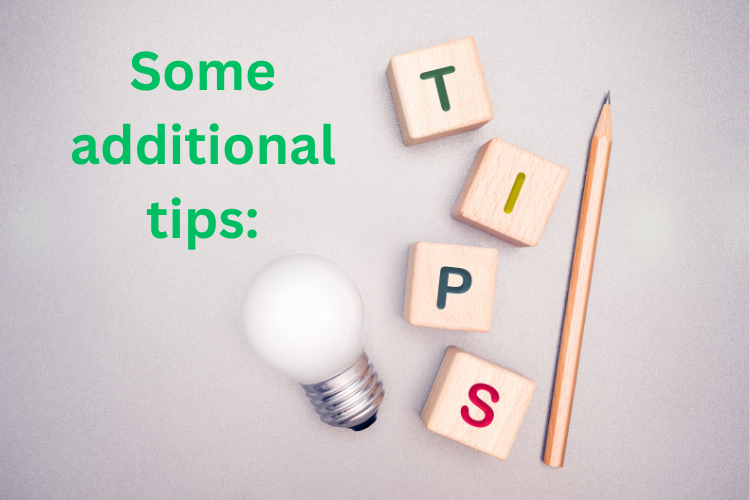Search engine optimization (SEO) is a rapidly growing field, and there is a high demand for qualified SEO professionals.
If you are interested in a career in SEO, this comprehensive guide will provide you with valuable insights and actionable steps to get a job in the SEO industry.
Why to Get a Job in field of SEO?
Getting a job in SEO ensures a secure future because it’s a growing industry with many job opportunities.
It can lead to financial success as it often offers good pay.
Moreover, working in SEO helps you learn new things and develop your mind, making it an enriching and fulfilling career choice.
Let’s start learning about how to start a career in SEO and get your dream job.
Understand what SEO is.
Before you can start looking for a job in SEO, it’s important to understand what SEO is and what it entails.
SEO stands for search engine optimization, and it’s the process of optimizing a website according to search engines. So that website can rank in search engine results pages.
There are many factors that can affect a website’s ranking, including the quality of the content, the use of keywords, and the structure of the website.
Develop a Strong Foundation:
To embark on a successful SEO career, it’s essential to develop a solid foundation of knowledge.
Begin by understanding the basic principles of search engines, how they work, and the role SEO plays in driving organic traffic.
Familiarize yourself with the various aspects of SEO, including keyword research, on-page optimization, link building, technical SEO, and analytics.
Acquire Relevant Skills:
Building a diverse skill set is crucial in the competitive SEO job market. Some of the key skills to acquire include:
- Keyword Research: Master the art of identifying and selecting relevant keywords that align with user intent and have high search volume.
- On-Page Optimization: Learn how to optimize website elements such as meta tags, headings, URLs, and content to enhance search engine visibility.
- Link Building: Understand the importance of building high-quality backlinks to improve a website’s authority and ranking.
- Technical SEO: Familiarize yourself with technical aspects like website speed optimization, mobile-friendliness, crawlability, and structured data implementation.
- Analytics: Gain proficiency in tools like Google Analytics to track website performance, monitor user behavior, and derive actionable insights.

Get Hands-On Experience:
Theory alone is not sufficient to excel in SEO.
Actively engage in practical projects to gain hands-on experience.
Start by creating your own website or blog and optimizing it for search engines. Experiment with different SEO techniques, analyze the results, and refine your strategies based on the outcomes.
Additionally, consider working on freelance projects or internships to build a portfolio that showcases your skills and accomplishments.
Earn Relevant Certifications:
Certifications can help you validate your skills and make your resume stand out.
Consider pursuing certifications such as Google Analytics Individual Qualification (GAIQ), Google Ads certifications, Moz SEO certifications, or SEMrush SEO certifications.
These credentials demonstrate your commitment to continuous learning and provide employers with tangible proof of your expertise.
- Google Search Engine Optimization Fundamentals
- HubSpot Inbound Marketing Certification
- Moz Academy SEO Certification

Build a Professional Network:
Networking is an essential factor in every job search process as it plays a pivotal role in connecting individuals and creating opportunities.
Connect with professionals in the SEO industry through platforms like LinkedIn, Twitter, or industry-specific forums.
Engage in meaningful conversations, contribute to discussions, and seek mentorship opportunities.
Building a strong professional network can provide valuable insights, job leads, and recommendations.
Attending SEO conferences and meetups is a great way to network with other SEO professionals.
You can learn from their experiences and get advice on how to break into the field. You can also use social media to connect with other SEO professionals.
Craft an Impressive Resume and Cover Letter:
Tailor your resume and cover letter to highlight your SEO skills, relevant experiences, and certifications.
Emphasize measurable achievements, such as improved website rankings, increased organic traffic, or successful SEO campaigns you’ve been involved in.
Use industry-specific keywords and showcase your analytical and problem-solving abilities.
Update your resume and LinkedIn profile.
Make sure your LinkedIn profile is up-to-date and highlights your SEO skills and experience.
You should also include links to your portfolio and any other relevant work in your LinkedIn profile.

Create a amazing portfolio
After gaining sufficient experience, it is recommended to develop a personal portfolio showcasing your work.
This will effectively demonstrate your abilities and skills to prospective employers.
Your portfolio should include case studies of your SEO work, as well as links to your website or blog.
Stay Up-to-Date with Industry Trends:
SEO is a rapidly evolving field, with search engine algorithms and best practices continually changing.
Stay ahead of the curve by staying informed about the latest industry trends, algorithm updates, and emerging SEO techniques.
Engage with SEO communities, follow industry blogs, participate in forums, and attend relevant webinars and conferences to expand your knowledge and network with industry professionals.
Apply for jobs
Once you have a portfolio, start applying for SEO jobs.
It is crucial to customize your resume and cover letter for every job application you submit.
You should also be prepared to answer questions about your SEO experience and knowledge.
Prepare for Interviews:
Prior to interviews, research the company thoroughly and familiarize yourself with their SEO strategies, current projects, and industry reputation.
Be prepared to answer common SEO interview questions and provide examples that demonstrate your expertise and problem-solving skills.
Additionally, be proactive in asking thoughtful questions that showcase your interest in the company and your eagerness to contribute.
Follow up after interviews.
Make sure to send a note to say thank you after each interview. This is a great way to show your interest in the job and to reiterate your qualifications.
Don’t give up.
Looking for a job can be hard, but never stop trying. You will have to keep applying for jobs and networking with other SEO professionals. Eventually, you will find the right job for you.

Bonus tips:
Getting a job in SEO can be challenging, but it is definitely possible. By adhering to these guidelines, you can enhance the likelihood of securing your desired employment opportunity.
Here are some additional tips for getting a job in SEO:
- Be determined. Persevere in your pursuit of your dream job even if immediate success eludes you. Continue to submit job applications diligently, and in due course, you will discover an ideal match for your skills and aspirations
- Be willing to learn. The field of SEO is constantly changing, so be prepared to learn new things on a regular basis.
- Be passionate. If you’re not passionate about SEO, it will be difficult to succeed in the field. Make sure you’re excited about the work and the challenges that come with it.
- Volunteer your services. If you don’t have any SEO experience, you can volunteer your services to a non-profit organization or a small business. This is a great way to get your foot in the door and start to build your SEO portfolio.
- Create a website or blog. Creating a website or blog is a great way to showcase your SEO skills. When you create a website or blog, be sure to optimize it for search engines.

Conclusion:
To get a job in SEO, you need dedication, ongoing learning, and practical experience. Here’s how to prepare:
- Learn the basics of SEO.
- Develop relevant skills.
- Gain hands-on experience.
- Stay updated with industry trends.
- Earn certifications.
- Build a professional network.
- Prepare for interviews.
By doing these things, you’ll become a qualified candidate for SEO jobs.
With perseverance and the right skills, you can have a rewarding career in the constantly evolving world of SEO.
Work hard and stay committed to achieve your goal of becoming a successful SEO professional.
Frequently Asked Questions (FAQs)
What are the basic requirements to get a job in SEO?
The basic requirements to get a job in SEO typically include:
- A solid understanding of digital marketing principles
- Familiarity with search engine algorithms
- Knowledge of SEO techniques and best practices
- Proficiency in using SEO tools and analytics
What skills are important for a career in SEO?
Important skills for a career in SEO include:
- Keyword research
- On-page optimization
- Link building
- Content creation
- Technical SEO
- Data analysis
- Familiarity with SEO tools such as Google Analytics and Google Search Console
How can I gain knowledge and skills in SEO?
You can gain knowledge and skills in SEO through various means, such as online courses, blogs, forums, webinars, and industry conferences.
Additionally, hands-on experience through personal projects or internships can help you apply and reinforce your learning.
Are certifications beneficial for getting an SEO job?
While certifications are not always mandatory, they can be beneficial for getting an SEO job.
Certifications such as Google Ads and Google Analytics provide evidence of your proficiency in specific areas of digital marketing and can help you stand out among other candidates.
How important is experience in SEO for job opportunities?
Experience in SEO is highly valued by employers.
Having practical experience demonstrates your ability to apply SEO strategies effectively and adapt to different situations.
Consider working on personal projects, volunteering, or interning to gain hands-on experience.
Are there any specific programming languages I need to learn for SEO?
While not mandatory, having a basic understanding of HTML, CSS, and JavaScript can be beneficial for SEO.
It allows you to make technical optimizations on websites, implement structured data, and troubleshoot issues that may impact SEO performance.
How can I showcase my SEO skills to potential employers?
You can showcase your SEO skills by creating a personal website or blog where you implement SEO techniques, optimizing it for search engines and showcasing your results.
Additionally, you can contribute to industry forums, write guest posts, or participate in SEO-related competitions.
How important is networking in the SEO industry?
Networking is crucial in the SEO industry.
Attending industry conferences, joining professional organizations, participating in webinars, and connecting with SEO professionals on social media platforms like LinkedIn can help you build relationships, gain insights, and discover job opportunities.
What should I include in my SEO job application?
In your SEO job application, you should include a well-crafted resume highlighting your relevant skills and experiences, a personalized cover letter explaining your interest in the position and why you are a good fit, and any supporting documents such as certifications or portfolio samples.
How can I prepare for SEO job interviews?
To prepare for SEO job interviews, review common SEO interview questions, familiarize yourself with industry trends and updates, demonstrate your practical experience through case studies or examples, and be prepared to discuss your approach to different SEO challenges.




